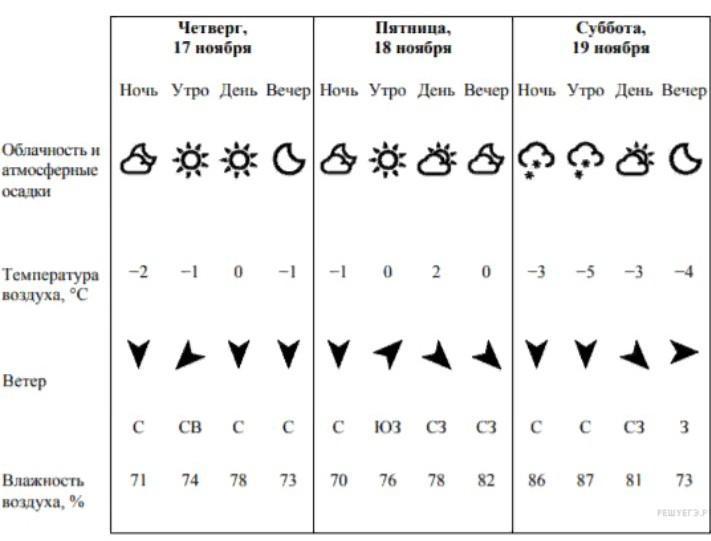Предмет: Окружающий мир,
автор: Аноним
Внимательно изучи по таблице суток. Ответы на вопросы. прогноз погоды на трое изображе релкой два eы из плас- 1 января, пятница 2 января, 3 января, суббота воскресенье ночь утро день вечер) ночь утро день вечер почь утро день вечер Облачность и атмосфер- C) 3 С ные осадки Температура, -8 -6 -6 -4 -4 -5 -12-13-21-20-20-24 С Направление ветра юз з зсз сз Cз в CB CB CB CB CB Влажность 68 72 82 69 66 68 60 59 48 47 46 46 воздуха, % Возможна ли капель в воскресенье? Ответ: В какую часть суток в субботу влажность воздуха будет самая низкая? Ответ:
Ответы
Автор ответа:
3
Ответ:
вроде бы так, я не знаю
Объяснение:
в инете высветилось первое это.
Приложения:

Похожие вопросы
Предмет: Русский язык,
автор: boks1
Предмет: Українська мова,
автор: Аноним
Предмет: Английский язык,
автор: nastia1893
Предмет: Українська мова,
автор: mrvideo122